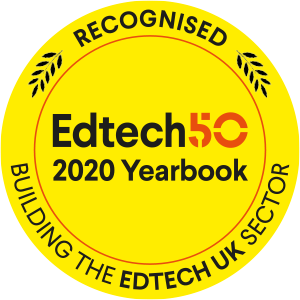E-Learning with SCORM and the Tin Can API
I've read a few things recently about Tin Can and it's got me thinking about what happens when new specifications like Tin Can begin to emerge and how you decide when or if to dive in and start developing bespoke e-learning that supports it.
SCORM's been around for a long time. I worked on an early implementation of SCORM in the first learndirect learner management system in the early 2000s. Back then it was one of the biggest implementations of SCORM in the world (certainly in terms of learner numbers) and we spent a lot of time working closely with bespoke e-learning development companies, many of them here in Sheffield, to iron out inconsistencies between their interpretation of the SCORM specification and our own interpretation.
Getting SCORM to work across multiple e-learning content developers and a single LMS platform was a challenge but in the end it worked. SCORM 1.2 was actually pretty straightforward and you could see it was a solution to a real problem - how to integrate third-party online content from different vendors in a single learner management system.
Tin Can is different - more flexible and powerful than SCORM. The key features of Tin Can are:
-
Learning experiences are captured as Tin Can ‘statements' - simple noun, verb, object statements that let you describe any learning activity. An example is:
Mike completed " Level 2 Certificate in Working in the Health Sector, Unit 1 " - Tin Can is device-independent - it doesn't have to be browser based and it doesn't need continuous network coverage. For example, a native app on an iPhone could store learner progress information and then send it to a back-office management information system at a later time.
- Tin Can introduces the idea of a Learning Record Store (LRS) - a separate system that stores Tin Can statements and that can accessed by the content delivering the learning experiences and the systems that then report progress.
Tin Can's flexibility sounds great but it presents some serious challenges:
- Do you really need or want to record lots of data about lots of different learning experiences?
- How do you get consistency across different systems - so different vendor applications generate statements that are worth saving, have some equivalency and some long term value outside the application that generates them?
- Information about learning experiences and progress is often complex - how do you store hierarchical data?
- How do you produce meaningful reports from a system that captures statements of learning experiences from multiple client applications?
So how do you decide if Tin Can's something you should use in your own learning management systems? I was thinking about our clients and the kind of requirements they typically come to us with. At the moment most of them want to record relatively small amounts of quite structured data about individual learners and their achievement. They also want to report on that data.
But if you're a large learning delivery organisation - maybe an Awarding Organisation with multiple client training providers or a big training provider that's commissioning bespoke e-learning content from different suppliers - then Tin Can is perhaps worth looking at, particularly if you can define at the start the statements that you want your learning content to generate and save.

